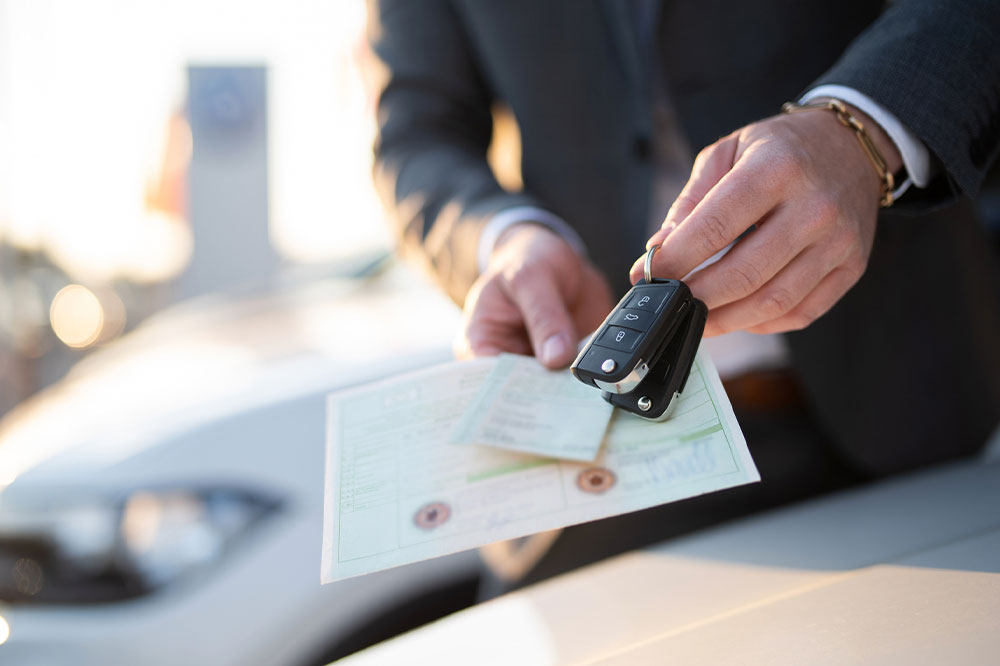Things to know about vehicle licensing and registration
Buying a new truck or car is exciting. But it also involves a lot of documentation and paperwork, which you must handle carefully. The two most important tasks in this regard are vehicle licensing and registration. These are required by law, regardless of your location and type of vehicle. The rules can vary slightly from state to state, but most requirements are the same. Here are a few things to know.

What is vehicle registration?
Vehicle registration is a process that connects the car to the owner. Every state requires people, by law, to get their vehicles registered with the state’s transportation agency or the Department of Motor Vehicles (DMV). The department’s executives inspect the car and record the details for future reference. The owner then receives a registration certificate. If you do not register the vehicle or let the registration lapse, you may have to pay a penalty fee or face vehicle impoundment.
What is vehicle licensing?
Vehicle licensing and registration go hand in hand. After registering the car for the first time or registering it in a new state, you receive license plates and any tags needed along with the plate. A license plate on the car implies that it is a registered vehicle and can freely use public roads. However, there are many rules to follow when displaying license plates, most of which are straightforward. For instance, the license plate should be visible, valid, and mounted in the right place, free of obstructions. In 31 states, you need two license plates, one for the rear and another for the front. The rest require only a single rear licensing plate.
What information is required to register a vehicle?
Although vehicle licensing and registration requirements differ from state to state, you will need to produce the following documents in most cases:
Lien or title
If you have purchased the vehicle by paying the entire amount, you must present the title (proof of ownership). But, if financed through a third party, you will need a lien agreement.
Proof of insurance
Most states require car owners to have insurance that meets the state’s minimum liability requirements. So, when registering the car, be ready to show the insurance card.
Odometer reading
The DMV may check the odometer reading as a part of the vehicle licensing and registration process. However, some states allow owners to report their car’s mileage.
Bill of sale
When shopping for a new car, buyers receive a sales bill from the dealership. Keep it handy as it is a mandatory document for vehicle registration.
Besides the above, you should possess a valid driver’s license for car registration. Also, you need credit cards, checks, or cash to pay for registration or renewal.
When to register the car?
You may have to register a new or existing vehicle for several reasons:
Buying a used or a new car
If buying a new or used car, the dealership may take care of the necessary registration steps. But you may have to pay an additional fee depending on who is selling the vehicle and where you live.
Renewing the current registration
Typically, you may have to register the car once every one to two years. The DMV charges a fee for each renewal, which can vary depending on the state.
Moving to a new state
Owners must re-register a car if they move to a new state. Depending on the rules applicable in the state, you have only a limited time to get the job done.
What are the penalties for defaulters?
If stopped by law enforcement or involved in an accident, you will have to present proof of insurance, license, and registration certificate. So, if you do not own the registration certificate, the vehicle may be impounded, or you will be fined. Fines also apply for late registration and renewal, and the amount varies from one state to another.
How much is the registration fee?
Vehicle licensing and registration charges may be different for different states. The car’s fuel efficiency and age determine the amount to be paid. The other influencing factors are vehicle type, declared or purchased value, date of purchase, and whether you hold any toll evasion bail or unpaid parking violations. The cost also depends on the type of license plate chosen. Personalized plates are more expensive.
Getting through the vehicle licensing and registration process for the first time can be daunting, but it is a mandatory prerequisite. So, do it in time to save money on fees and penalties.




